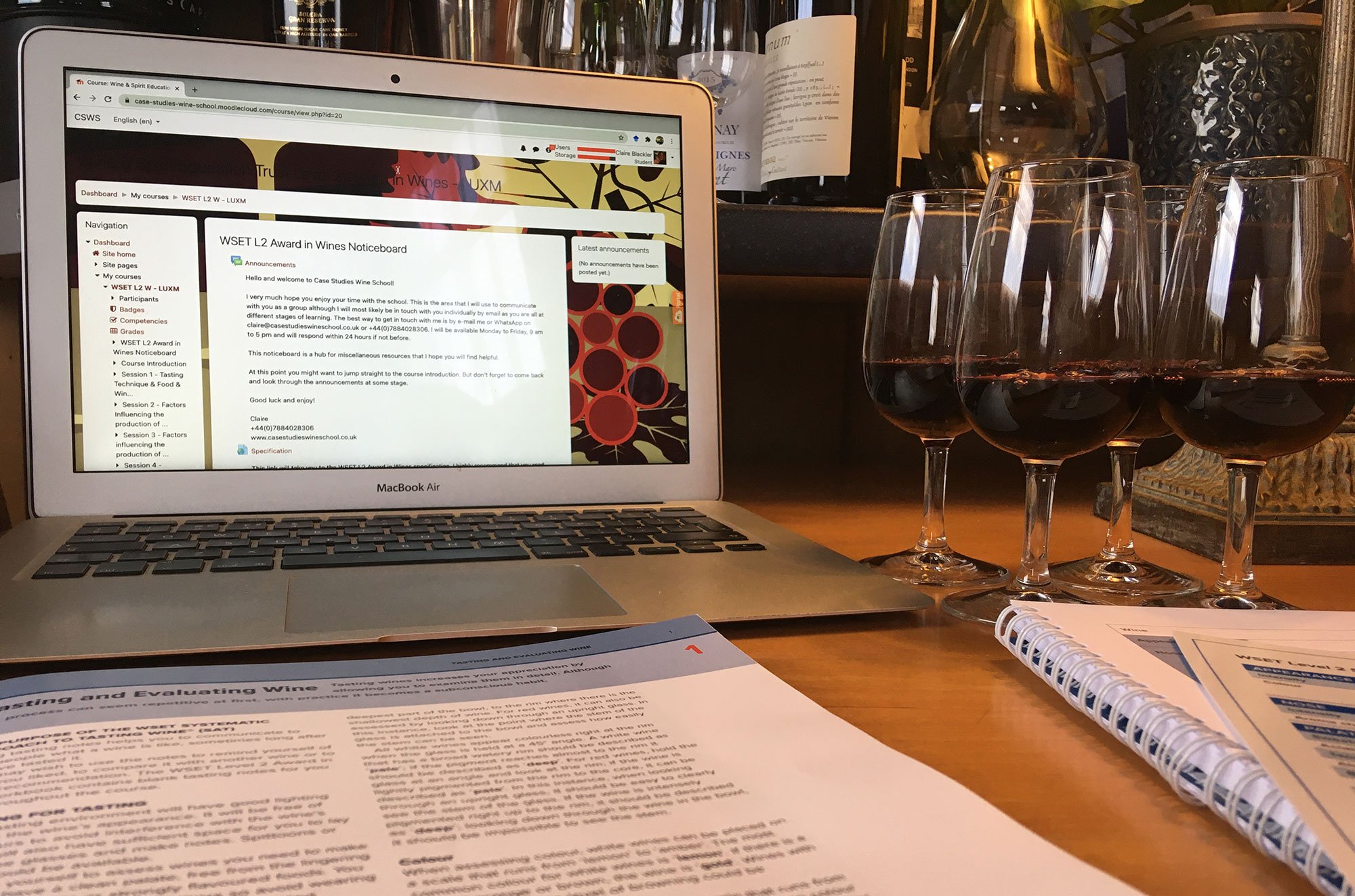Pivoting to Online Learning, Perspectives for Wine & Spirits Education
Pivot, an adjustment or modification made to adapt or improve, is a word I barely used in that context until two years ago.The Covid-19 pandemic and the resulting government restrictions on travelling and meeting forced a re-think of how the wine & spirits industry supports learning for professionals and enthusiasts. Education providers very quickly pivoted from offering traditional in-person courses and tastings to offering those courses online.
I started this pivot in 2017. I became aware that the pressures of managing and balancing business requirements, family time, and leisure time with learning and development were increasing, and students struggled to attend in-person classes. So, I converted all my WSET courses to a hybrid learning format combining online theory studies with in-person practical courses.
With pandemic restrictions, I had to pivot further and faster! Practical classes also moved online. I quickly learnt how to use Zoom and devised a system for sending wine samples to students through the post in 50 ml pouches, protected by inert gas.
But, how do online courses compare to in-person classes? Are they effective for learning about wines and spirits? Do online courses offer any benefits over in-person courses? Now that we are emerging from the pandemic, it is time to review the two options.
Skills & Competencies
My results, albeit from a small data pool, indicate that online learning is no less effective than traditional in-person classes. My pass rate remains above average, and students leave satisfied with their WSET qualifications, certificates, pins, and great reviews!
In addition to increased knowledge and developing tasting skills, online courses also offer students a range of other benefits, including:
Flexibility
Adaptability
Time-management
Self-motivation
Communication and collaboration
Global perspective
Critical thinking
Technical skills
Problem-solving
All of which are essential skills and competencies required by wine and spirits industry employers.
Accessibility
Moving wine courses online has made them available to a broader range of people. I now have candidates who would not have been able to attend in-person classes. For example, they regularly travel for work, are based on superyachts in the Mediterranean, or have young families.
Inclusivity
Not everyone is comfortable learning in a group finding it an intimidating experience, and this seems particularly heightened for wine and spirits tasting. Online learning can provide candidates frustrated with the traditional group learning experience with a safe space. With this in mind, I have created demonstration videos that students can watch on-demand. I work with students personally to help them understand the WSET’s Systematic Approach to Tasting. I can see the results of this in their confident and practical evaluation of wines and spirits.
Convenience
The online classroom is available 24/7. Students can therefore study at their own pace in their own time. In their pyjamas, in the garden, on the bus or whilst the baby is having a nap. Students can make their own learning schedules. The online classroom is mobile-enabled and can be viewed wherever students are.
Resources
In one place, the online classroom contains all the resources that students need to achieve their WSET qualifications. Video and audio content, a recommended reading guide and tasting list, assignments and activities, discussion forums, webinars, mindmaps, and flashcards. Students still get a hardcopy study pack to accompany their level (1, 2 or 3), although there is an e-book if preferred. I also offer an enhanced version of each course, including wine and spirits samples and one-to-one video tutorials with a certified WSET educator.
Learning Styles
I completely understand that some students prefer the immediate opportunities for discussion and feedback that in-person sessions offer. People inspire people, and working in a group provides motivation and networking opportunities which many of us benefit from. With this in mind, I have incorporated opportunities for interaction in all my online courses, including chat sessions, WhatsApp groups and discussion forums, and I’m regularly in touch with all students to see how they’re getting on.
My inbox is always open, and I’m happy to chat via video/phone/email/social media — go to the bottom of the page for all of these options.
Studying online or in person will depend on the student’s learning style, needs, goals and priorities. Online learning isn’t the right choice for everyone, but it is very much a viable choice. I offer a free 15-minute consultation if you’d like to talk through the options for learning about wines and spirits. If you’d like to book a consultation, please contact me.

